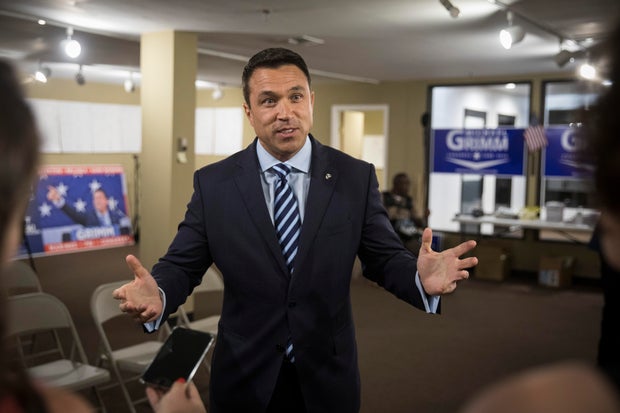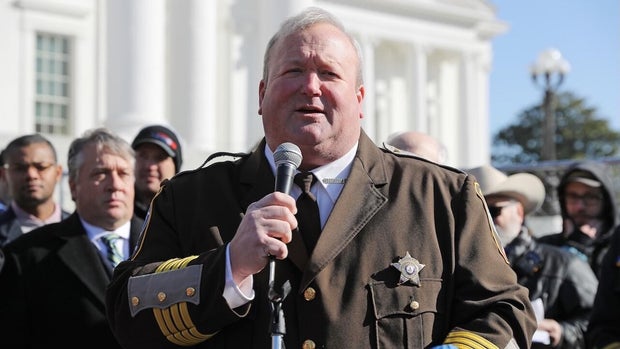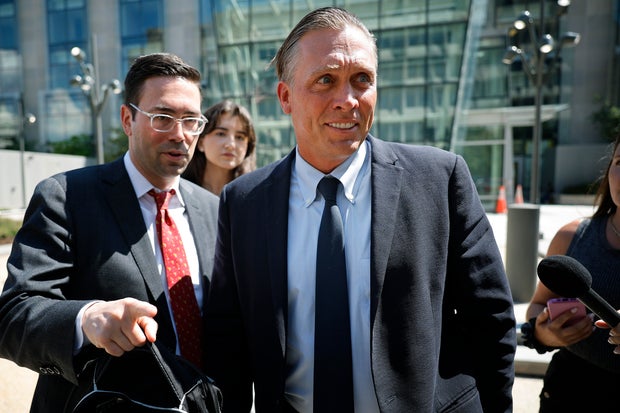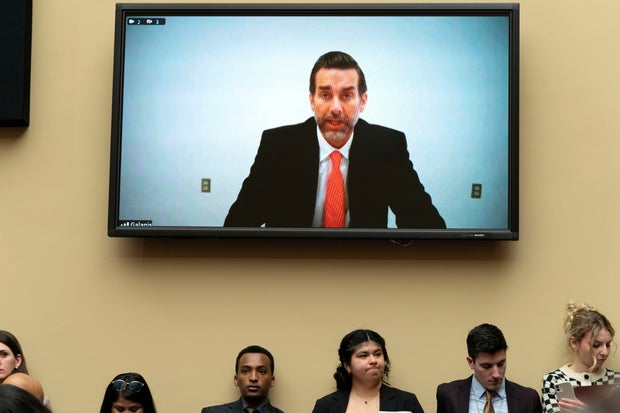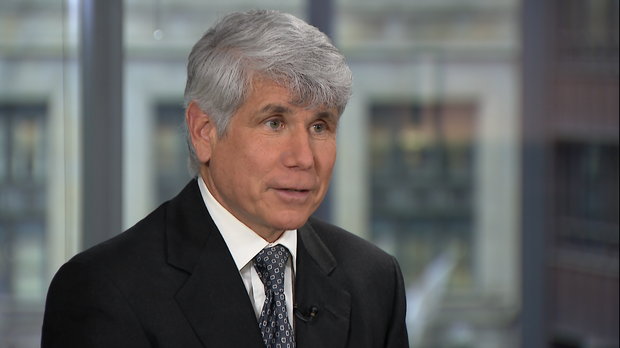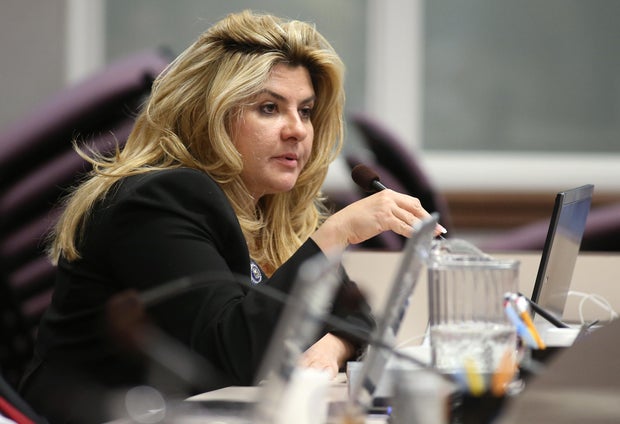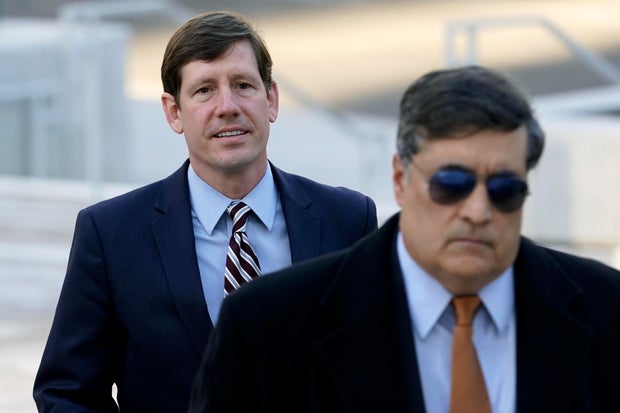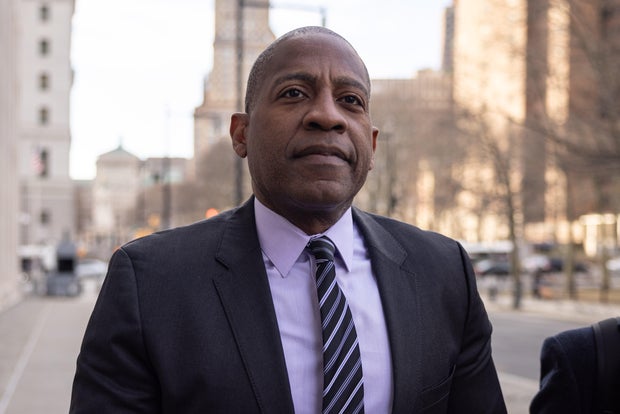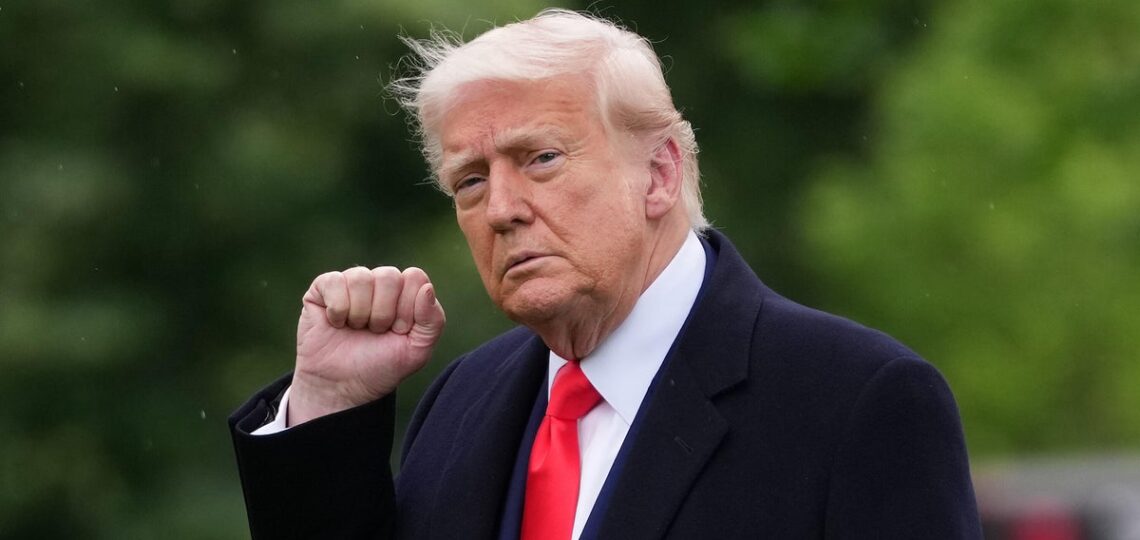
Trump’s pardons this term include these convicted fraudsters and supporters
Washington — President Trump this week has issued pardons and commutations for several convicted fraudsters, the latest in a series of pardons for white-collar criminals in his second term, claiming in many cases that they were unfairly targeted for being his supporters.
Here are some of the people Mr. Trump has used his clemency power on:
Reality TV stars Todd and Julie Chrisley
Tommy Garcia/USA Network/NBCU Photo Bank/NBCUniversal via Getty Images
Mr. Trump said on May 27 that he would pardon reality TV stars Todd and Julie Chrisley, who were imprisoned after being sentenced in 2022 on bank fraud and tax evasion charges.
The couple, who starred on “Chrisley Knows Best,” submitted false financial statements to obtain more than $30 million in personal loans, which they spent on luxury cars, designer clothes, real estate and travel, the Justice Department said. The couple also concealed their income from the IRS to avoid paying nearly $500,000 in delinquent taxes, while also failing to file tax returns and pay taxes from 2013 through 2016. The couple pleaded not guilty.
In a video posted by a White House aide, Mr. Trump can be heard speaking with the Chrisleys’ children, saying “your parents are going to be free and clean. I hope we can do it by tomorrow.” The couple’s daughter, Savannah, had been seeking a pardon for her parents, and has compared their case to the president’s legal troubles.
Michael Grimm
Drew Angerer / Getty Images
The White House said on May 28 that Mr. Trump had pardoned former Rep. Michael Grimm of New York, who had pleaded guilty in 2014 to tax fraud and related charges. Prosecutors alleged he underreported wages and revenue to the government, and that he filed false tax documents at a restaurant he owned before serving in Congress.
Despite the indictment, Grimm was reelected in 2014, although he pleaded guilty one month later and resigned in January 2015. He served eight months in prison.
Grimm attempted a comeback run in 2018, but lost the GOP primary for his Staten Island and southern Brooklyn district. Grimm last year was paralyzed from the chest down after being thrown from a horse while playing polo.
Former Virginia sheriff Scott Jenkins
Chip Somodevilla / Getty Images
On May 26, the president said he was pardoning a former Virginia sheriff, Scott Jenkins, who was sentenced to prison in March on fraud and bribery charges. Jenkins took $75,000 worth of bribes, federal prosecutors said, giving badges to eight untrained and unvetted individuals from whom he had allegedly accepted cash and campaign contributions. Jenkins pleaded not guilty, and denied any connection between taking payments and issuing badges at trial.
Mr. Trump said in a post on Truth Social that Jenkins, a longstanding supporter of the president’s, “is a victim of an overzealous Biden Department of Justice, and doesn’t deserve to spend a single day in jail.”
“He is a wonderful person, who was persecuted by the Radical Left ‘monsters,’ and ‘left for dead,'” Mr. Trump added.
Ex-Hunter Biden business partner Devon Archer
Chip Somodevilla / Staff / Getty Images
Devon Archer, a former business partner of Hunter Biden, was convicted in 2018 for his connection to a scheme to fraudulently issue more than $60 million of tribal bonds to the business arm of a South Dakota-based Native American tribe. He was sentenced to a year and a day in prison. Archer — who pleaded not guilty — appealed his case, taking it all the way to the Supreme Court, which in 2024 refused to hear his attempt to overturn his conviction.
As Mr. Trump prepared to sign the pardon, Trump staff secretary Will Scharf said “the tone and tenor” of the case against Archer “changed dramatically after he began to cooperate with congressional investigators and serve as a witness against Hunter Biden and the Biden family.”
“Many people have asked me to do this,” Mr. Trump said before signing the pardon. “I think he was treated very unfairly. And I looked at the record, studied the records, and he was. He was a victim of a crime, as far as I’m concerned. So we’re going to undo that.”
Hunter Biden associate Jason Galanis
Jose Luis Magana / AP
Jason Galanis was sentenced in 2020 to over a decade of prison time for his alleged involvement in several fraud schemes, including the same one as Archer involving Native American tribal bonds. Mr. Trump commuted his sentence to time served. Galanis pleaded guilty.
Like Archer, Galanis testified in a House GOP-led investigation into Hunter Biden, describing himself as a former business partner of the then-president’s son. Galanis said he, Biden and Archer hoped to make “billions,” including by trading on Hunter Biden’s family name. The younger Biden called Galanis a liar, and told House investigators he could only recall meeting Galanis “10 years ago for 30 minutes.”
Former Illinois Gov. Rod Blagojevich
Former Illinois Gov. Rod Blagojevich received a full pardon from Mr. Trump in February, after the president had commuted his sentence at the end of his first term, in February 2020. He was sentenced to 14 years in prison in December 2011 on 18 corruption charges, among them, an attempt to sell Barack Obama’s U.S. Senate seat after he won the White House in 2008.
Blagojevich and Mr. Trump have known each other for decades. Long before he ran for president, Mr. Trump donated to the former Illinois governor’s campaigns, and Blagojevich at one point was also a contestant on NBC’s “Celebrity Apprentice” in March and April 2010, while he was fighting the corruption charges. He was “fired” by Mr. Trump after about four weeks on the show. Trump even asked the other contestants, “Who thinks Rod is guilty?”
Blagojevich pleaded not guilty and has long insisted he is innocent.
Nevada state lawmaker Michelle Fiore
Cathleen Allison / AP
Mr. Trump also pardoned Michelle Fiore, a former city councilwoman and Nevada state lawmaker, in April. Fiore was accused of using money meant for a statue honoring police officers killed in the line of duty for her own personal expenses and was found guilty in October on wire fraud charges. She pleaded not guilty to the charges.
Former Tennessee state Sen. Brian Kelsey
Mark Humphrey / AP
In March, the president pardoned former Tennessee state Sen. Brian Kelsey, shortly after he had begun serving jail time for a campaign finance scheme. The Republican had pleaded guilty in 2022 to charges concerning his attempt to funnel campaign money from his state seat to a federal race for Congress, before trying to reverse the plea.
“God used Donald Trump to save me from the weaponized Biden DOJ,” Kelsey said in a post on X.
Electric truck entrepreneur Trevor Milton
AP Photo/Lawrence Neumewister
Earlier this year, Mr. Trump pardoned Nikola founder Trevor Milton, who was convicted of securities fraud and wire fraud for lying to investors in his electric truck company.
Prosecutors allege Milton boosted the company’s share price by heavily exaggerating its successes, including by falsely claiming Nikola had built a “fully functioning” prototype of an electric truck and posting misleading videos that made it look like the prototype could drive under its own power. He was charged in 2021, a year after some of the allegations were first raised by short-selling firm Hindenburg Research.
Milton — who denied wrongdoing — was sentenced to four years in prison. But the president pardoned him in March, claiming he was targeted for being a Trump supporter. Milton had donated hundreds of thousands to a pro-Trump group in 2024.
Ozy founder Carlos Watson
Photographer: Yuki Iwamura/Bloomberg via Getty Images
The president commuted the prison sentence of Carlos Watson, who founded the digital media company Ozy, and was sentenced to almost a decade in prison for conspiracy to commit securities fraud and wire fraud.
Watson and his coworkers allegedly raised millions from investors by misrepresenting Ozy’s finances. At one point, an Ozy employee allegedly impersonated a YouTube executive on a call with Goldman Sachs, aiming to convince the bank to invest in Ozy by talking up the success of its YouTube channel — an infamous story documented in a New York Times column. Mr. Trump commuted Watson’s sentence to time served, shortly before he reported to prison.
Watson pleaded not guilty, and maintained his innocence at trial.
Paul Walczak
In April, Mr. Trump pardoned Paul Walczak, who had been sentenced earlier that month to 18 months in prison for failing to pay over $10 million in taxes related to nursing homes he controlled. According to the Justice Department, Walczak — who pleaded guilty — was “not compliant with his tax obligations and instead used the withheld taxes to enrich himself.”
White House spokesperson Harrison Fields said in a statement that Walczak is an “entrepreneur targeted by the Biden administration over his family’s conservative politics.”
Walczak’s mother, Elizabeth Fago, is a donor to Mr. Trump and visited the White House at least twice in Mr. Trump’s first term. According to The New York Times, Fago attended a $1 million a plate fundraiser for Mr. Trump shortly before Walczak was pardoned.
Jeremy Hutchinson
Mr. Trump pardoned former Arkansas state Sen. Jeremy Hutchinson, who had been convicted on bribery and tax charges, on May 29.
Hutchinson — the nephew of former Arkansas Gov. Asa Hutchinson — pleaded guilty in two different bribery cases in 2019, acknowledging in court papers that he took payments from an orthodontic specialist and a healthcare charity and used his position as a lawmaker to back their interests. He also pleaded guilty to tax charges, Hutchinson was sentenced to a total of eight years in prison.
Other cases dropped
Outside of clemency, the Trump administration has moved to drop charges against a handful of others in recent months. The Justice Department moved to toss out charges against Republican former Rep. Jeff Fortenberry, who had been convicted of lying to the FBI. And in February, the Justice Department told federal prosecutors in New York to drop their corruption case against New York Mayor Eric Adams.

